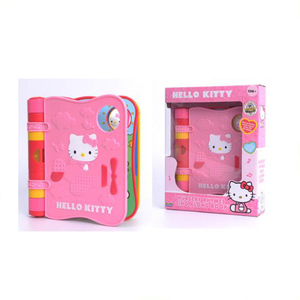Introduction to Dictionary Hard
A dictionary hard is more than just an ordinary reference book; it represents a robust collection of vocabulary designed specifically for students, professionals, and writers who strive for clarity and precision in language. Ultimately, a dictionary hard is an integral tool that facilitates effective communication and deepens understanding of the English language. Its sturdy build not only gives it longevity but also makes it a dependable resource for anyone ranging from casual users to dedicated linguists.
Types of Dictionary Hard
Dictionary hards come in various types to serve distinct needs and preferences:
- General Dictionaries: These dictionaries cover a broad range of words, providing definitions, parts of speech, and usage examples. Ideal for everyday use and general knowledge.
- Specialized Dictionaries: Focused on specific fields such as medicine, law, or technology, offering precise terminologies essential for professionals in these industries.
- Thesauri: A type of dictionary hard that includes synonyms and antonyms, useful for enhancing vocabulary and improving writing style.
- Bi-lingual or Multilingual Dictionaries: These dictionaries help in understanding multiple languages, ideal for language learners and translators.
- Historical Dictionaries: Document the evolution of words and languages, providing insights into their etymology and transformation over time.
Applications of Dictionary Hard
Utilizing a dictionary hard extends beyond mere vocabulary enhancement. Here are several applications:
- Academic Learning: Students can utilize dictionary hards to understand new words encountered in their studies, improving overall comprehension and grades.
- Professional Writing: Writers and editors rely on these resources to ensure precise language use, which is vital for impactful communication in reports and publications.
- Language Learning: New language learners find dictionary hards invaluable for exploring vocabulary, pronunciation, and context.
- Editing and Proofreading: Editors use dictionaries to check spelling and context to maintain accuracy in published materials.
- Creative Writing: Authors often reference a dictionary hard to explore different word choices and enhance their narrative style.
Features of the Dictionary Hard
When considering a dictionary hard, several features stand out that enhance its utility:
- Comprehensive Entries: Each entry typically includes not just the definition but also pronunciation guides, example sentences, and etymology.
- Durable Binding: Designed for frequent use, many dictionary hards feature durable hardcovers that withstand wear and tear.
- Illustrated Pages: Some versions include illustrations to help clarify meanings, especially useful for visual learners.
- Appendices: Many dictionaries include special sections, such as lists of common phrases, idioms, or acronyms to broaden language understanding.
- Updated Editions: Language evolves, so it's essential that the dictionary hard is regularly updated to include contemporary vocabulary and usage.
Advantages of Using a Dictionary Hard
Opting for a dictionary hard offers several advantages that can enhance your language experience:
- Accessibility: Being a tangible book means it can be accessed without the need for electronic devices or internet connectivity.
- Comprehension: Physical dictionaries allow for a deeper engagement, as users can annotate or bookmark essential pages.
- Focus: Using a dictionary hard reduces digital distractions, allowing for focused learning and browsing.
- Retention: Studies suggest that reviewing material in printed form aids in better retention of information.
- Comprehensive Knowledge Base: These books provide a wealth of information, often more extensive than their digital counterparts.






















































